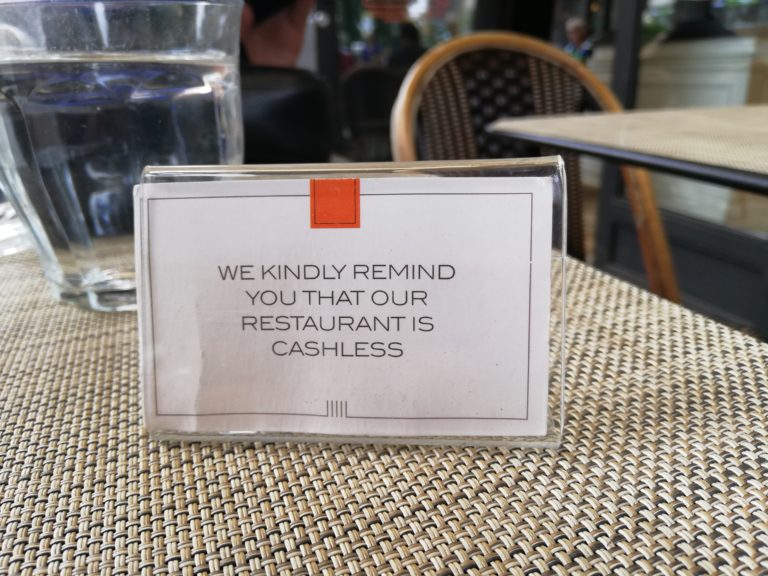Equal opportunities for all, through cash
Following the trend of other U.S. cities and States like Washington D.C., New Jersey and Massachusetts (since 1978), New York City is proposing a bill – sponsored by Council Member Ritchie Torres – that would ban restaurants and retailers from refusing cashMoney in physical form such as banknotes and coins. More payments.
Torres even made a video to support the cause, citing “What does it mean to those Americans that have no access to credit? What if you’re homeless? What if you’re undocumented? What if you’re underbanked? […] Nearly 8.4 million U.S. households do not have a bank account, 19% are “underbanked”, relying on cash for daily purchases” he goes on to state “25% of New Yorkers are underbanked”.
Indeed, many people living in metropolitan areas with a good income fail to think of the effect of cashless retailers on those that are not as fortunate. There are initiatives like PayNearMe and AmazonCash that make online and digital purchases more accessible, but these still require owning some form of technology such as a smartphone with internet access or a PC.
The proliferation of bills in support of cash payments is a clear indication that, as cash becomes less accessible or less accepted, people are beginning to realize the negative consequences and greater implications of this trend. Even France, one of the EU countries where consumers are the least fond of cash payments, is reacting to the growing number of ATM closures, particularly in rural areas where residents have to travel ever longer distances to withdraw some euros. In fact, the French Senate is exploring the possibility of forcing banks to maintain ATM access in areas where local banks have shut down [article in French].
“What kind of de facto discrimination we’re okay with sanctioning in the marketplace?” wonders Torres, Council Member of a city where the large majority of Black and Hispanic households are unbanked. Although the food service industry is expected to ferociously fight against the bill, “Major Bill de Blasio said in December that, although he had not yet read the legislation, it has ‘merit’”.
Let’s hope that the voice of those that are rarely heard, is finally put on speakerphone.
